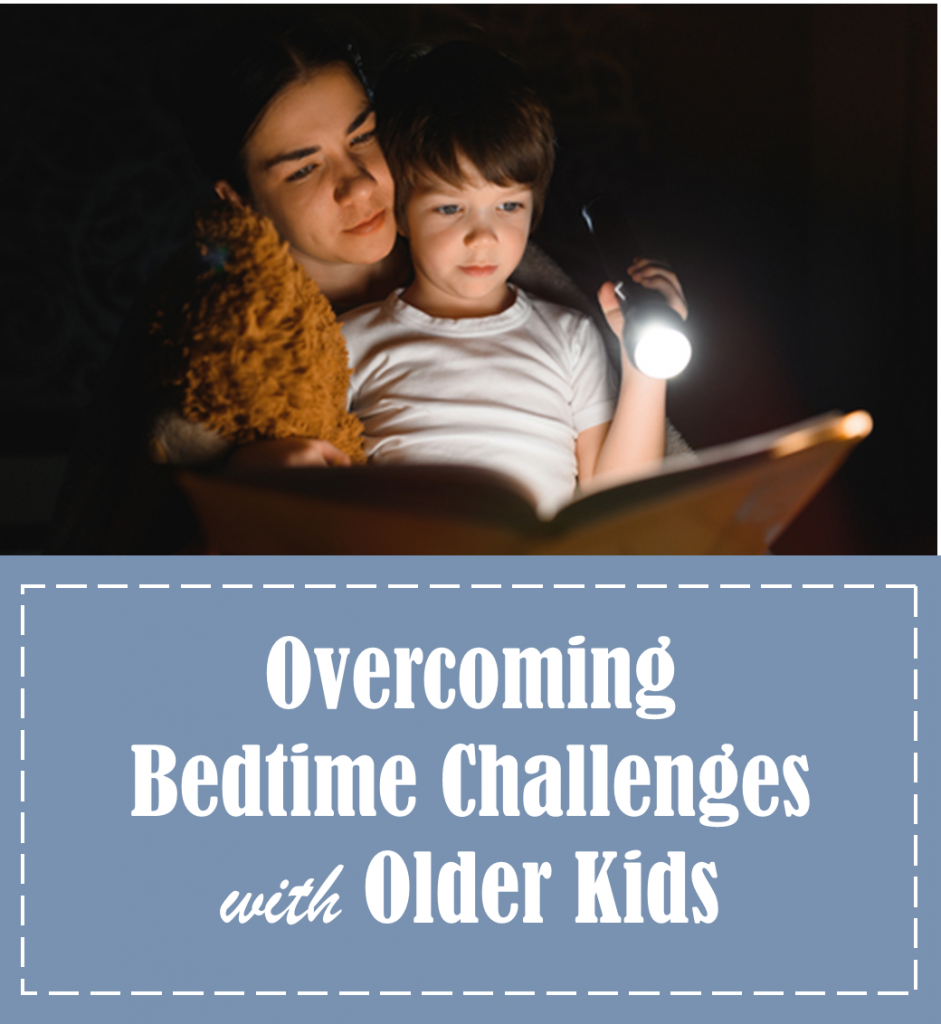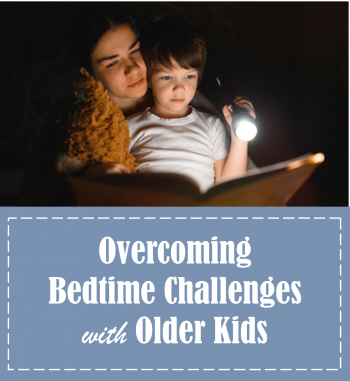
Note from Kim: Ooops! A reader kindly alerted me that this show, which I released back in July, wasn’t working. I’ve uploaded the file again and re-released it. Thank you!
******
Parents get plenty of advice about how they should handle sleep issues with babies and toddlers, but what about older kids? What should we do when our school-age children (and even teenagers) can’t seem to settle down at night? In this show, I clarify the potential source of the problem and provide a few ideas for helping older kids let go of the day so they can go to sleep.
An overview of the points I cover on the show:
When older kids struggle at bedtime, we are often grappling with three potential problems that create a child’s resistance to sleep or inability to fall asleep. I boil them down to separation, agitation, and limitations.
Separation
Separation is a primal human fear. We naturally fear and resist separation from the people we love, and for children, this means separation from the people who are meant to keep them safe. For some kids, this separation feels like too much to manage. Parents can bridge separation to help children feel held by us until morning. I offer bridging ideas, but many parents bridge intuitively and have unique ways of pointing their children’s minds toward the next point of connection to them.
Agitation
Some kids have trouble settling down at bedtime because they have pent up physical or emotional energy that needs to come out. I suggest some routines and rituals that create “play sanctuaries” a few hours before bedtime. Play sanctuaries provide an invitation for the release of whatever physical or emotional energy so it doesn’t explode out at bedtime when separation is added to the mix.
Limitations
Sometimes our own limitations are getting in the way at bedtime and creating tension that escalates.
Expectations: Do we have expectations that are unrealistic, even temporarily? Is our child dealing with any stress, changes, or disruptions that are causing him to need increased support? Do we have an image of what bedtime should look like and we’re angry because our child isn’t getting with the program?
Emotional resources: At bedtime, are we completely exhausted and drained physically or emotionally so we have nothing left to give? Often our kids sense this and cling more! What can we do when our child’s needs and our own resources are misaligned? How can our faith help us find what we need?
Big Picture: When our kids resist bedtime, rarely are we dealing with badness in our kids. Usually we are looking at a maturity issue: our child needs us to be the grown-up so they can feel safe enough to let go of us and the day. If our child is too alarmed, he will not come to rest emotionally so his body won’t come rest physically.
In reality, we can’t control our kids going to sleep! But we can yield control to God, asking God to give us what we need to make it through these difficult moments with our child. We can ask God to give us the insight, the patience, and the wisdom we need to navigate bedtime challenges. God usually has a lesson to teach us; he is leading and parenting us as we are leading and parenting our kids.
Resources
Win Bedtime Battles with Routines & Rituals. In this show I talk about how our routines and rituals can make bedtime easier because our children know what to expect and what is expected of them.
A General Theory of Love by Thomas Lewis. This is the book I mentioned on the show. Lewis describes “limbic resonance” – the human capacity to recognize what another person is feeling, even if they are not aware of it.

